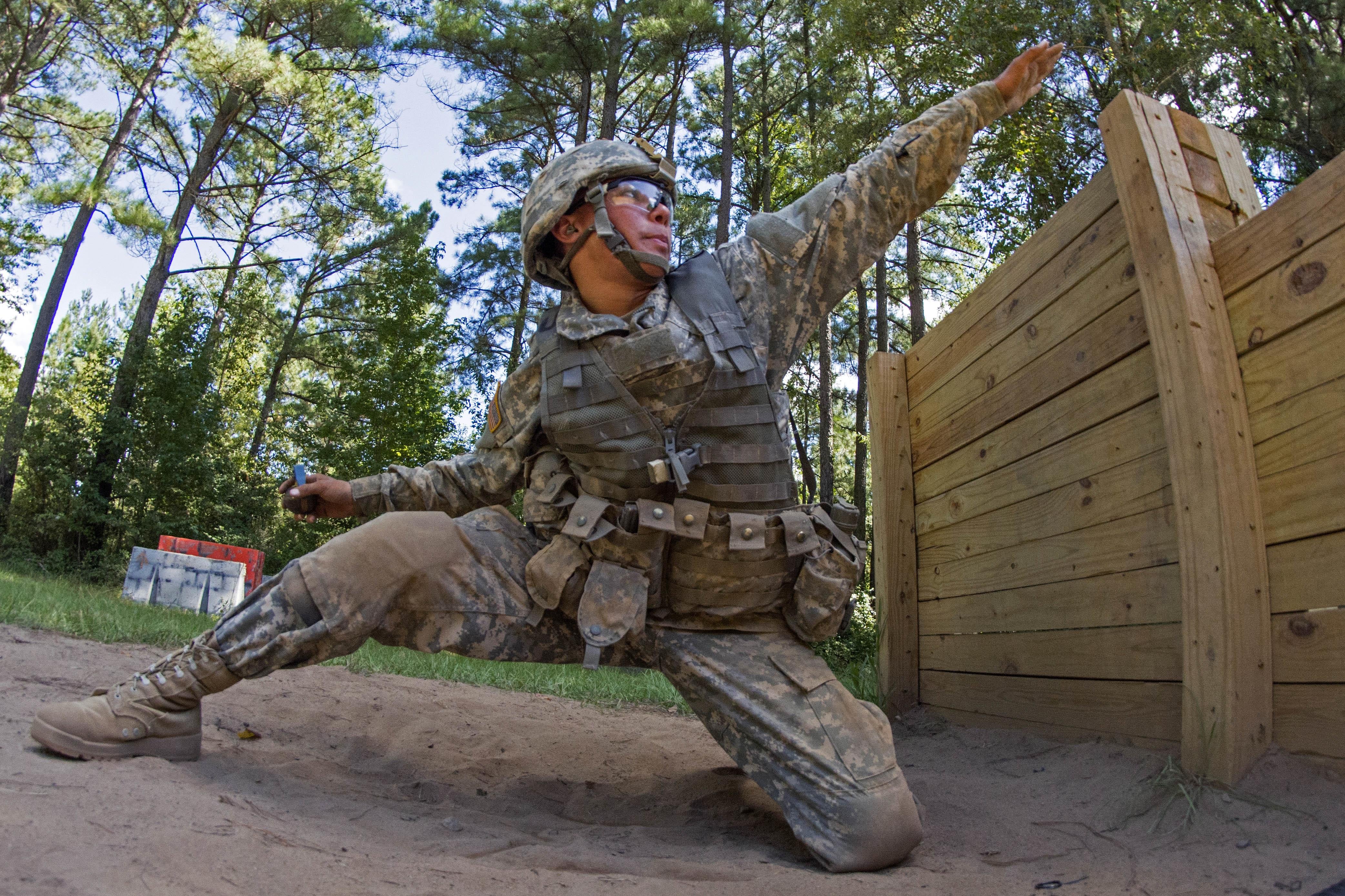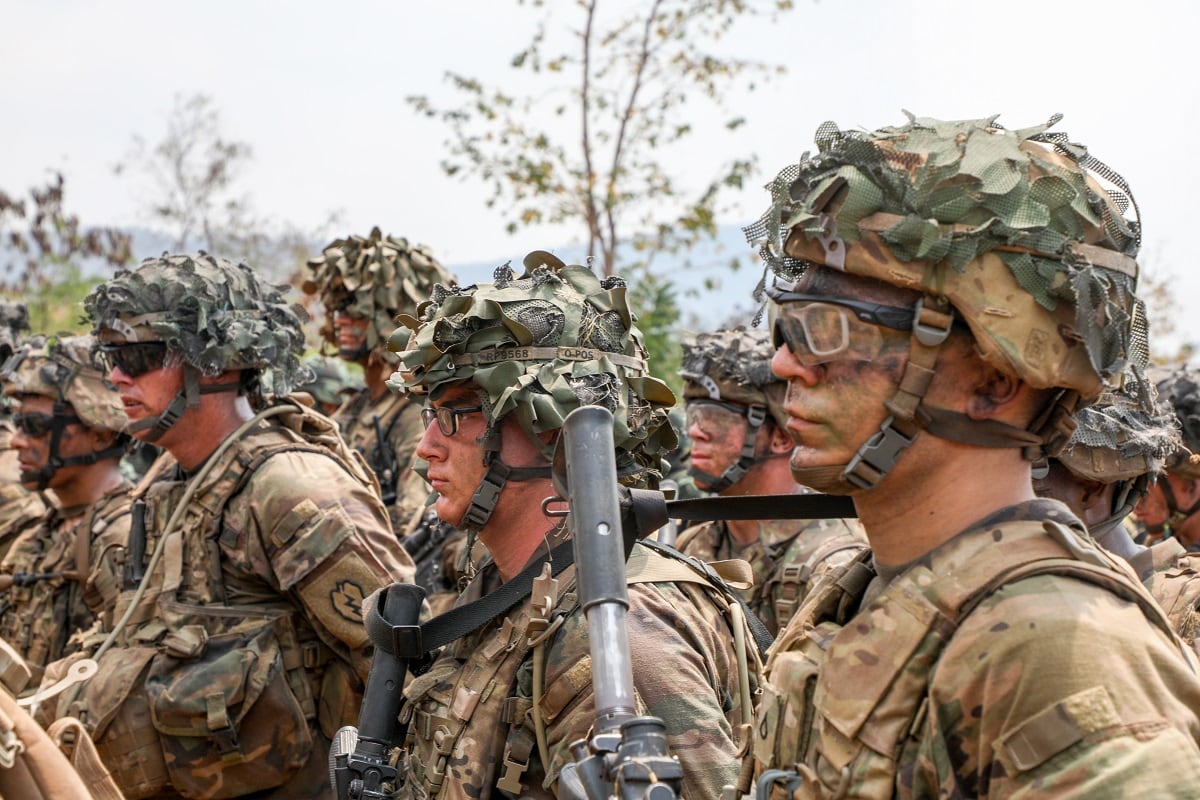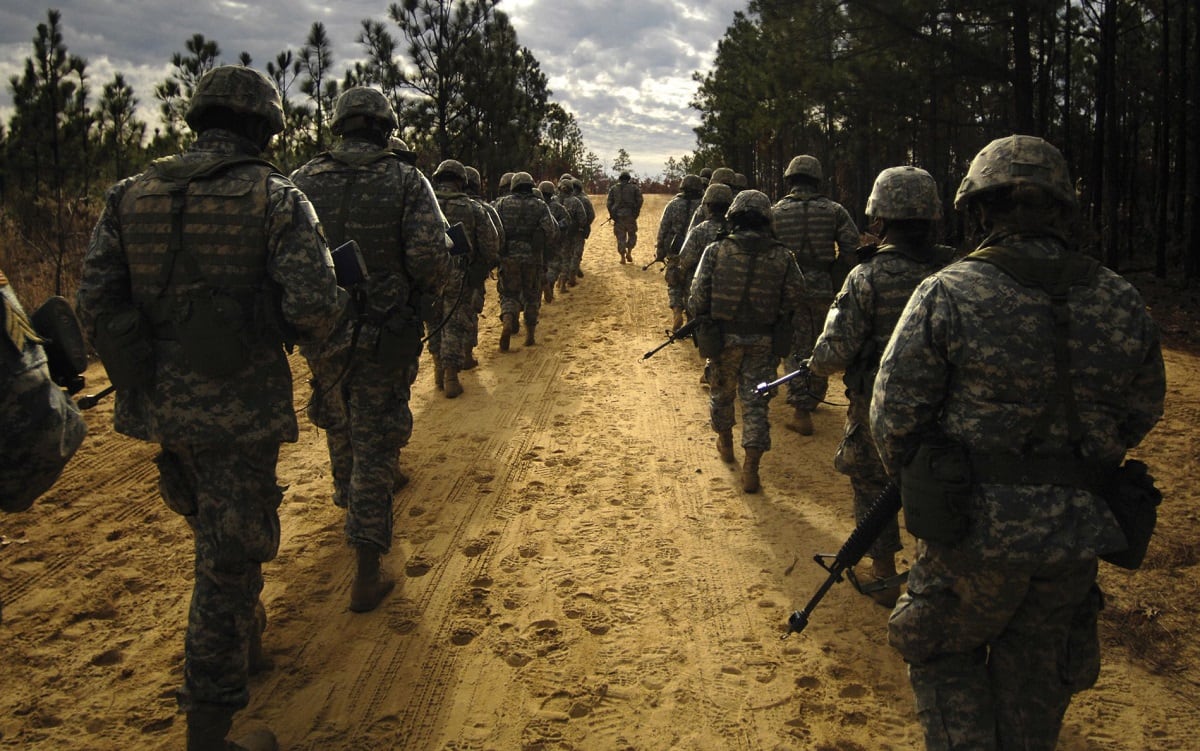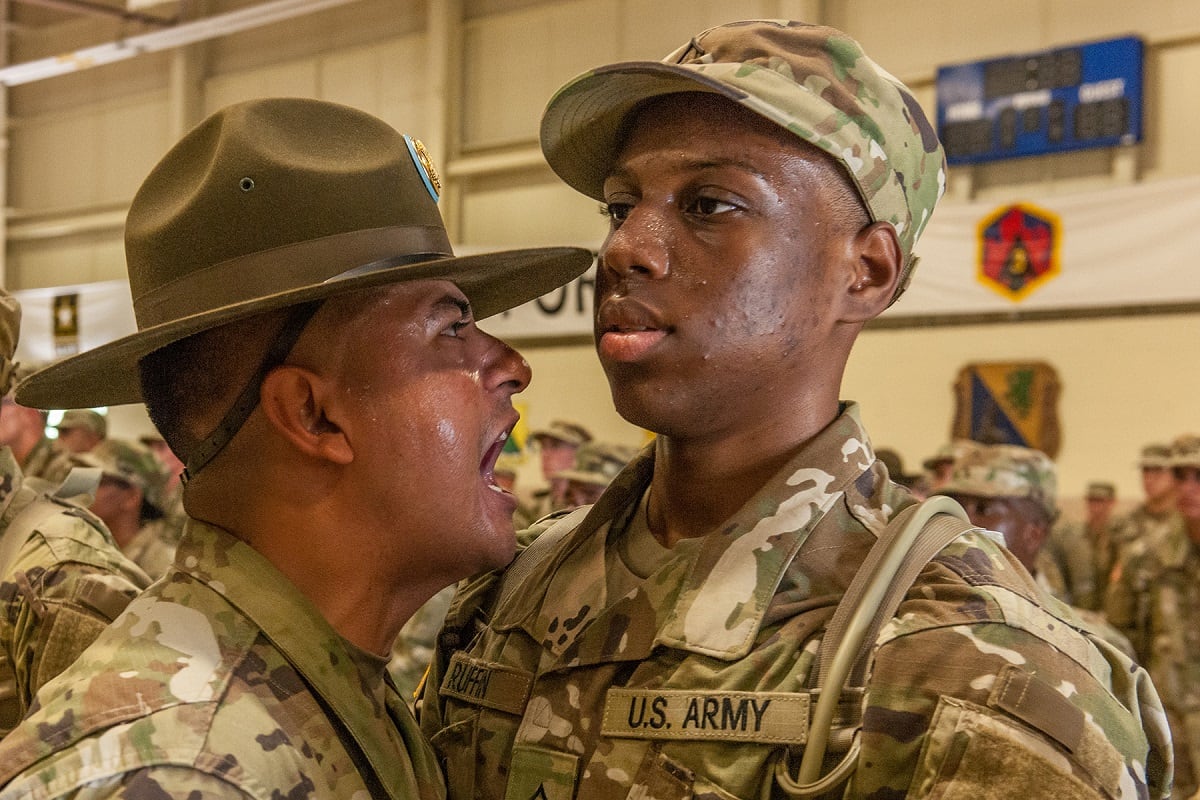While most new soldiers are satisfied with their overall experience in the Army so far, many of them would have appreciated if their recruiters had been more honest.
That is one finding from “Life as a Private,” a Rand Corp. study published May 13 that surveyed several dozen soldiers about their reasons for joining the Army and their experiences thus far.
“Many recruiters perform admirably, but others may paint an unrealistic picture of day-to-day soldier life, thereby creating unusually high expectations,” according to the study’s introduction.
Overwhelmingly, researchers found that most young soldiers were influenced by their families to join, were enjoying their time in the Army and planned to eventually leave and move on to a civilian career.
“I think it’s interesting,” Army Secretary Mark Esper told Army Times on May 16 about the study’s findings. “I think you need to know what this generation is ― what motivates, what drives them to serve.”
But leaders have warned that the military is becoming a family business, with the vast majority of new accessions carrying on a family tradition. While a solid recruiting base, there are fears that with military service declining overall, recruiting solely out of military families narrows the backgrounds, education and life experience of potential service members.
“There’s some new and some old. The old is the family is the biggest influencer on these young people,” Esper said. “So it’s important as we think about recruiting, we’ve got to talk to the families as well.”
So, in a somewhat austere recruiting environment, at a time when the Army is trying to grow, Rand researchers set out to provide the service with some insight and guidance on how to reach the kind of recruits it seeks.
“The Army continues to seek improvements in its recruiting process to avoid what have been periodic reductions in recruit quality and number,” the study says.

A team of researchers interviewed 81 soldiers from private to specialist in six career fields ― infantry, armor, artillery, medical, maintenance and supply ― assigned to their first units at Fort Bragg, North Carolina, Fort Drum, New York, Fort Riley, Kansas, and Fort Hood, Texas.
There they asked the new soldiers ― 70 men and 11 women, averaging between 19 and 21 years old, with more than 60 percent high school graduates and about one-third with at least some college experience ― about why they joined, what they were expecting from their service, what their experience had been so far, and when they planned to make a career of the Army or move on.
“Participants routinely identified relatives who had served in the Army, and many suggested that family history critically impacted their decision to join,” the study says. “A call to serve and perceptions of honor were intermixed with desire for new adventures and considered calculations of benefits and steady paychecks.”
RELATED

Bureaucracy and busy work
Once they had finished basic training and reported to their first units, the new soldiers reported a less exciting reality of daily life in garrison.
“Many of these same soldiers expressed frustration with the bureaucratic characteristics of work in the Army. For example, some soldiers complained about not being able to perform the jobs they trained for during Basic Combat Training (BCT) and Advanced Individual Training (AIT),” the study found. “Others expressed frustration with boredom, the lack of time spent training in the field, and performing tasks that did not relate to their occupations; a few soldiers wanted more deployment opportunities.”
While many had joined to move on from dead-end jobs for a stable paycheck and benefits, there was a general feeling that they wanted to go downrange and do the job they’d spent so much time learning.
“I was very encouraged by the fact ... a lot of them join the Army because they want to train and go to the field and deploy, and that is counterintuitive for a lot of folks,” Esper said. “But I’ve seen that on my travels as well. Soldiers want to go deploy, they want to go to Kuwait, they want to go to Afghanistan, they want to do those types of things.”
Unfortunately, the researchers found, some were greeted with a different reality of what their lives would look like after training.
“Many recruiters perform admirably, but others may paint an unrealistic picture of day-to-day soldier life, thereby creating unusually high expectations,” the study says. “A steady diet of World War II action movies may likewise leave a prospective soldier uninformed about modern life in the Army.”
The stereotype of the embellishing recruiter is alive and well, according to the study.
“I’ve probably said this about five times already, but the expectation was working with other soldiers, providing for their medical needs. … But all that … I’ve done … was clean CONEXs [container expresses] and trucks. I understand that’s stuff that has to be done, but it’s literally all I’ve done, and I sit around from 0900 to 1700,” one medic told researchers.
RELATED

That sentiment was similar among other combat MOSs.
“I thought it was going to be … really high speed, just a high tempo all the time. Most of the time it’s a lot of sitting around, waiting for something to get done, or sitting around, waiting for another person to get done with dispatching their vehicle, or cleaning the motor pool,” an artilleryman said.
On the other hand, some support soldiers were surprised by the culture.
“I thought it was going to be more laid back, honestly. … I knew [Basic and AIT] would be bad, but when I got here it’s just basically the same thing … just mainly new NCOs [noncommissioned officers] and people who are full of power in their head,” one supply soldier said.
Researchers recommended that the Army take these complaints into account at the recruiter level.
“Many recruiters offered genuine help to soldiers seeking a job in the Army, but other recruiters (and recruitment materials) appeared to oversell an MOS and set overly high expectations for entering soldiers,” according to the study. “Though one-third of participants stated their MOS met or exceeded expectations, other soldiers were disappointed with aspects of their occupational specialty choices, complaining about boredom, about lack of field time, and about having to perform tasks unrelated to their occupations.”
‘Bonds and camaraderie’
Still, despite those negative feelings, the respondents largely rated their Army careers as positive, and said they would recommend that other young people in their situation enlist.
“Hell yeah. … The more and more I stay in this job, the more and more I feel like I was built for this, I can do this,” one artilleryman said. “I mean, it’s just a state of mind, you have to have the right mindset. But yeah, someone like me, all day, every day, I’d tell them to join up immediately.”
And more than anything, soldiers reported that it was the friends they made in their unit that confirmed their choice to join the Army.
RELATED

“… my whole squad. … We all talk to each other, say how are we doing, how life is going. Then after that, my leadership will ask me almost every day, hey, how am I doing, doing good, OK,” an armor soldier said. “Then every other day, my platoon sergeant would ask me how am I doing, how are you liking it, it’s like a little checking in on what’s going on. You’re never there asking yourself, why isn’t nobody caring? Everybody cares there, because we’re all a team, we’re all going to take care of each other.”
The Army should take that to heart, according to the study, in their recruiting efforts.
Despite struggles, most soldiers reported a strong support group and social life within their units, and, “ most critically, report that their commanders, NCOs, and peers ‘care the most’ about their well-being. These social bonds may be leveraged to support recruitment or retention.”
While most had questioned their decision to enlist, and were generally unsure whether they intended to make a career out of the Army or leave after one enlistment, they were satisfied thus far.
“It’s not hard to do this, what I do, I don’t think it is. Especially if you’re a young, single, unmarried dude [as] I am. I don’t have to pay for rent, I know every two weeks I get a paycheck coming, I don’t have to pay for food if I don’t want to,” one armor soldier said. “And it’s pretty easy, as long as I go do PT and then listen to what the dude with stripes on his chest tells me to do, it’s super easy. Life especially as a private is so easy. The government has put thousands of dollars into me, and so I know they’re going to want to keep me.”
Meghann Myers is the Pentagon bureau chief at Military Times. She covers operations, policy, personnel, leadership and other issues affecting service members.




